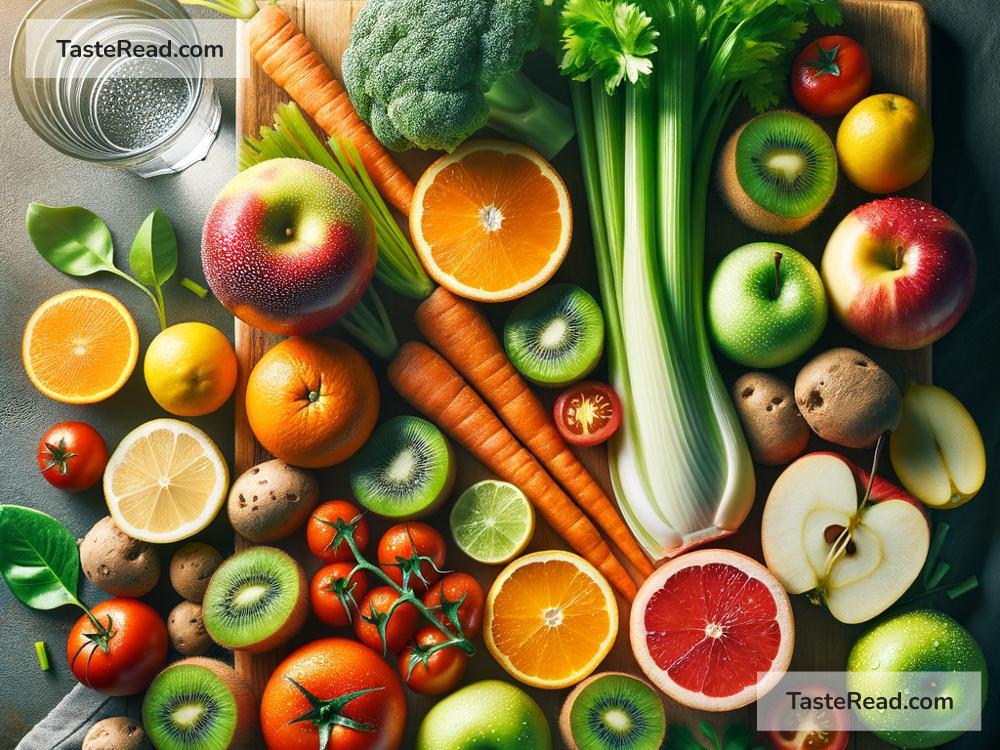Foods That Support Salivary Gland Function
Saliva may not be something we think about every day, but it plays a crucial role in keeping our mouth healthy. Produced by the salivary glands, saliva helps us chew, swallow, and digest food, while also protecting our teeth and gums from bacteria. When the salivary glands aren’t working properly, it can lead to issues like dry mouth, bad breath, difficulty eating, and a higher risk of tooth decay. Thankfully, adding nourishing foods to your diet can help support your salivary glands and encourage proper saliva production. Let’s explore some of the best foods for improving salivary gland function.
1. Hydrating Foods: Fruits and Vegetables
One of the simplest ways to support your salivary glands is by staying hydrated. Saliva production depends on having enough water in your body, and foods rich in water can help keep your glands functioning smoothly.
- Cucumber: Packed with water and nutrients, cucumbers are excellent for hydration.
- Watermelon: This juicy fruit contains over 90% water and provides a refreshing boost to saliva production.
- Celery: Crunchy and hydrating, celery also requires chewing, which stimulates the salivary glands.
Make sure to include fruits and vegetables with high water content in your meals to stay hydrated naturally.
2. Vitamin C-Rich Foods
Vitamin C plays a vital role in the health of salivary glands. This nutrient helps reduce inflammation, supports tissue repair, and promotes overall oral health. Incorporating foods rich in vitamin C into your diet can improve saliva flow and help prevent oral health problems.
- Citrus Fruits: Oranges, lemons, and grapefruit are great sources of vitamin C and can boost salivary gland function.
- Strawberries: Sweet and delicious, strawberries provide a rich dose of vitamin C and antioxidants.
- Bell Peppers: Whether green, red, or yellow, bell peppers are packed with vitamin C and are perfect for snacking or adding to salads.
These foods can help your salivary glands work more effectively while also protecting your gums and teeth.
3. Foods Rich in Antioxidants
Antioxidants are essential for fighting oxidative stress and protecting the cells in your body, including those in your salivary glands. They can also help prevent inflammation, which may hinder salivary gland function.
- Blueberries: Known for their high antioxidant content, blueberries are a tasty and nutritious choice.
- Spinach: This leafy green powerhouse is loaded with antioxidants that support gland health.
- Green Tea: Sipping green tea can deliver a hefty dose of antioxidants while keeping the mouth moist.
By adding antioxidant-rich foods to your diet, you can give your glands the protection they need to stay healthy.
4. Chewing-Activated Foods
Chewing is one of the best ways to stimulate the salivary glands. When you chew, your glands get to work producing more saliva to break down food. Foods that require extra chewing are particularly helpful for improving saliva flow.
- Carrots: Crunchy carrots are great for stimulating the glands while delivering a dose of nutrients.
- Apples: The firm texture of apples makes them an excellent choice for triggering saliva production.
- Nuts: Almonds, walnuts, and other nuts are healthy snacks that require extended chewing.
These foods make your salivary glands work harder, which is beneficial for maintaining their function over time.
5. Zinc-Rich Foods
Zinc is an essential mineral for salivary gland function and overall oral health. It helps maintain healthy tissues, prevents dry mouth, and supports immunity within the mouth.
- Pumpkin Seeds: These small but potent seeds are rich in zinc and easy to snack on.
- Lean Meats: Beef, chicken, and turkey provide ample zinc and are great additions to a balanced diet.
- Seafood: Shellfish like oysters and crab are excellent sources of zinc.
Regularly consuming zinc-rich foods can help keep your salivary glands performing at their best.
6. Spicy Foods
Spicy foods, like chili peppers, can boost saliva production in the short term, especially if your glands are feeling sluggish. Capsaicin, the compound that gives peppers their heat, stimulates the salivary glands and encourages saliva flow.
- Salsa: Made with tomatoes, onions, and peppers, salsa is not only flavorful but also supportive of your glands.
- Chili Peppers: Adding a spicy kick to your dishes can help hydrate your mouth and stimulate saliva production.
Just be mindful of consuming spicy foods in moderation, as too much can irritate your stomach or mouth.
7. Probiotic-Rich Foods
Probiotics are beneficial bacteria that promote digestive health and can support salivary gland function. They may help balance the oral microbiome, reducing the risk of infections that could affect the glands.
- Yogurt: Natural, unsweetened yogurt is packed with probiotics that support oral health.
- Kefir: This fermented drink is a fantastic source of probiotics for your gut and mouth.
- Sauerkraut: Tangy, fermented sauerkraut contains probiotics that help combat dryness and promote healthy saliva.
Adding probiotic-rich foods to your diet can help keep your mouth and salivary glands in good shape.
Final Tips for Salivary Gland Health
In addition to eating supportive foods, drinking plenty of water is essential for maintaining your salivary glands. Avoid sugary or overly processed foods, as these can contribute to oral health problems. If dry mouth persists despite dietary changes, consult a healthcare professional to rule out underlying medical conditions.
By incorporating the foods above into your diet, you can keep your salivary glands healthy and functioning properly. Give your glands the support they need—it’s a simple change that can make a big difference for your oral health!


